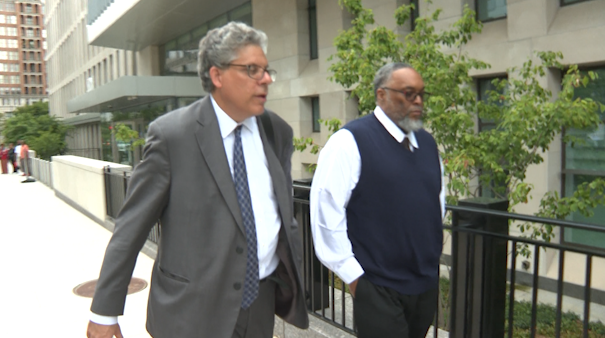In a recent trial in Washington, DC, a DC government employee named Jason Lewis is facing charges of second-degree murder and assault with a dangerous weapon after shooting and killing a 13-year-old boy named Karon Blake in January 2023. The incident took place outside Lewis’ home on Quincy Street NE, where he claimed to have heard sounds outside before firing shots towards an alley. After firing at a car in the alley, Lewis then shot and killed Blake as he ran towards him. Following the shooting, Lewis called 911 and his mother, a former police officer, expressing concern that he may have killed a child.
During closing arguments, the prosecution argued that Lewis did not act in self-defense and should be found guilty of murder. They claimed that Lewis was the first aggressor in the situation, and that he did not need to leave the safety of his home but chose to do so anyway. Prosecutors also highlighted that Blake’s actions of running towards Lewis after hearing a gunshot were likely motivated by fear, and played audio and video of the incident to support their case. Although they acknowledged Blake’s wrongdoing in attempting to break into cars, they emphasized that he did not deserve to die and should not have been met with deadly force.
On the other hand, the defense attorney spent a significant amount of time in closing arguments attempting to undermine the prosecution’s case and portray Lewis as a responsible individual who worked with children. They argued that Lewis acted within the bounds of the law and believed he was in a threatening situation, justifying his actions in self-defense. The key question posed to the jury was whether Lewis had acted in self-defense at the time of the shooting.
The trial and deliberations shed light on the complex circumstances surrounding the shooting, with conflicting perspectives on the events leading up to the tragic death of Karon Blake. While the prosecution argued that Lewis acted rashly and unnecessarily used deadly force, the defense emphasized his perceived threat and the legality of his actions. The jury’s decision on whether Lewis acted in self-defense will ultimately determine the outcome of the case and the justice served in this tragic incident.
The case has sparked debates and discussions about self-defense laws, gun violence, and the use of lethal force in response to perceived threats. It raises questions about the responsibilities of individuals in such situations, the role of law enforcement, and the impact of violence on communities. The outcome of the trial will have lasting implications for how similar cases are handled in the future and the standard of justice applied in cases involving deadly encounters. The tragic death of Karon Blake serves as a stark reminder of the consequences of violence and the importance of accountability in cases of lethal force.


